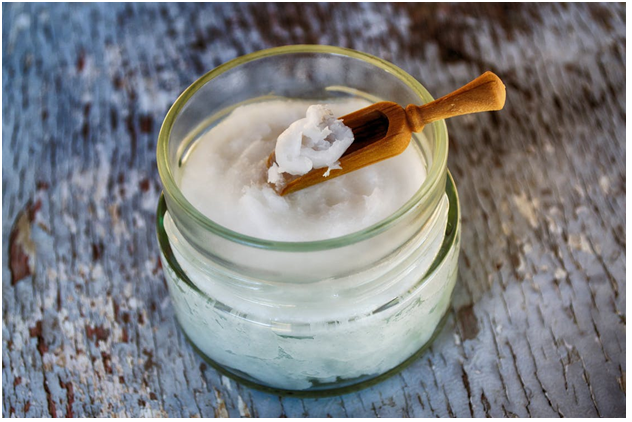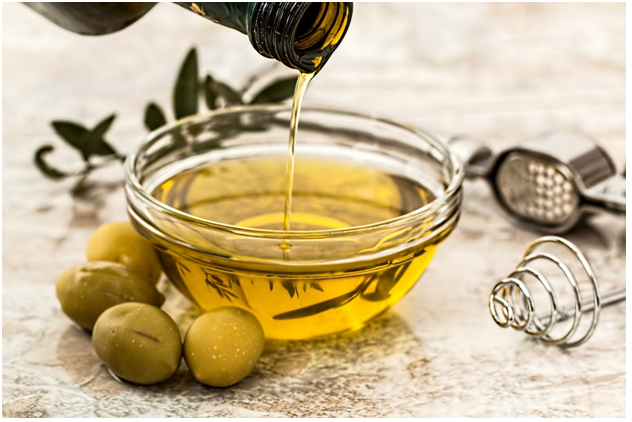Spotlighting Some of the Best Black Hair Oils, Their Effects, and How You Can Use Them
21st Jan 2022
Black hair, with its wide variability in style and texture, is naturally beautiful. Black hair can be naturally straight and lustrous, or luxuriously wavy and curly. With that said, beauty comes at a price. To showcase its natural beauty, black hair requires some special care and attention to really shine.
For example, black hair, with its natural propensity to waves and curls, is much more prone to stress, breakage, and other dryness-related damage. Without proper moisturization and treatments, it will be much more likely to suffer dehydration, breakage, and other issues.
Some of the needs of these natural hair types can be met with a proper, well-devised routine that makes use of hair products like fortifying conditioners and wisely selected shampoos. Abstaining from washing the hair too frequently will also help to protect against damage. However, in order to provide a level of care for your hair that will really make it shine, you’ll need to use a black hair oil.
The Need for High Quality, Natural Black Hair Oil
There are some people who are blessed with hair types that require little more than routine washing with a hydrating shampoo in order to remain lustrous and vibrant. Others need a little help from powerful conditioners that are filled with moisturizers, proteins, and other agents that lock in moisture and strengthen the individual strands of hair.
However, many types of natural black hair require not only judicious washing and conditioning, but also the use of a black hair oil blend to prevent hair from drying out in between washing and conditioning treatments.
This is due not only in part to the fact that black hair is naturally prone to dryness, but African-American skin is as well. The scalp naturally produces sebum and other natural oils that moisturize and strengthen both skin and the hair, but in the absence of a supplement, black skin and hair are likely to dry out. It is difficult to provide too much moisture. In this instance, one almost can’t have too much of a good thing.
Therein lies the need for a quality, natural black oil hair blend to protect and strengthen the hair. Hair oil helps to provide moisture to the scalp and to each individual strand of hair, and it can help to seal in moisture as well by strengthening the cuticle of each strand. In addition, natural hair products are considered superior to synthetic alternatives (like petroleum-based oils) because in the long run, these synthetic oils can exacerbate issues associated with dryness.
How to Use Black Hair Oils: Two Different Methods
There are two main ways to use a black hair oil in order to moisturize, rejuvenate and strengthen the hair. These are hot oil treatments and cold oil treatments. Hot oil treatments are involved and generally best when devised as a part of a larger hair care routine, whereas cold oil treatments can be applied as frequently as desired.
Hot oil treatments will not only lock in moisture and reduce frizziness; they will also strengthen your hair against breakage, helping to rein in issues such as split ends. They’ll also benefit the overall health of the skin on your scalp.
It’s best to practice your hot oil treatments after you’ve washed your hair, as oil will be more readily absorbed by clean hair. After you’ve washed and conditioned your hair, gently warm up your black hair oil of choice, such as in its closed container wrapped in a warm towel or suspended in a bowl of warm water. Be careful not to apply excessively hot oil to your skin as it can burn you; test the heat of the oil on your wrist or the back of your hand before proceeding.
Massage the warm oil into your hair and scalp, paying careful attention to the ends of your hair. After you’ve worked your oil of choice into your hair, cover your head. You can use a shower cap, but some prefer to use a warm towel as it will help to insulate the warm oil, encouraging absorption into your skin and hair. Leave your head covered for anywhere from 20 to 30 minutes.
Once you have completed that, remove the towel or cap, and rinse out the oil from your hair. Follow with your normal conditioning routine, and enjoy the results of naturally moisturized, naturally beautiful hair!
The alternative to a hot oil treatment is a cold oil treatment, but cold oil treatments can be conducted with slightly less ritual, which means you can perform a cold oil treatment as needed, even in between washings.
Because cold oil treatments require less preparation than hot oil treatments, they’re perfect for those times when you’re on-the-go and just need to provide a little extra nourishment for your hair outside of your normal routine.
Take your hair oil of choice, massage it into your scalp and hair, paying special attention to your ends, as you would with a hot oil treatment. Allow your hair to rest and absorb the oil, and that’s all there is to it! You don’t necessarily need to rinse your hair, especially after a sparing application of cold oil, but you can if you so choose.
Even though hot oil is more readily absorbed by the skin and hair than cold oil, cold oil treatments carry many of the same benefits as hot oil treatments, including increased hair strength, better moisturization and moisture retention, and even potentially enhanced natural sheen. Oil treatments even have the potential to fill out your hair, giving the appearance of greater density, and best of all may even be suitable treatments to encourage hair growth (which is why some of them are marketed as growth oils).
With that said, here are some of the most popular oils that are used to make black hair oil blends. Keep in mind that it is not unusual to see them sold in proprietary mixtures and that often an oil blend will contain several of the following oils which are excellent for treating dry hair.
Jojoba Oil
Jojoba (pronounced huh-HOH-bah) oil is a wax ester that is produced from the seeds of a shrub that grows in the Southwestern United States and Mexico. It is easily absorbed by all hair types and can strengthen them from the inside out, but it is especially useful at promoting the health of curly and wavy hair.
What’s interesting about jojoba oil is that it is said to be similar in size and structure to the skin’s natural sebum, so that it can be easily absorbed into the skin and hair, hydrating and strengthening in a similar manner to natural sebum.
Jojoba oil is also full of vitamins and minerals that strengthen the hair, making it appear fuller and thicker. The unique blend of nutrients may also help combat hair loss and even encourage hair growth. It’s also useful as a frizz-fighter, and as it is also beneficial for the scalp, jojoba oil can be used to rein in dandruff.
Jamaican Black Castor Oil
Jamaican black castor oil is a thick, dark oil that is popular in use as a black hair oil, and its popularity is only growing. Like jojoba oil, Jamaican black castor oil hydrates the hair helps to combat dandruff, and can even be seen as a hair growth agent, as it fills in hair and helps to prevent hair loss. If you have a dry, itchy scalp or other issues such as eczema or redness, Jamaican black castor oil might be the black hair oil for you.
However, if you are going to use Jamaican black castor oil for any of its many benefits, be aware of the fact that it is very thick, which can make it difficult to wash out, and it also is prone to staining. Cover your clothes with a towel before you apply it because it will likely stain what it contacts.
Argan Oil
Argan oil is so popular as a hair treatment that it is commonly found as an ingredient in conditioners and shampoos. Made from the kernels of the argan tree, which is native to North Africa, argan oil is widely used in hair and skin care because it has a pleasant aroma and has been suggested to provide a wide range of benefits.
Argan oil easily penetrates both the skin and hair and may be able to boost and protect your natural skin barrier function. With respect to hair, argan oil both hydrates and strengthens the hair strands, reducing frizz and brittleness and improving strength, resilience, and elasticity.
Coconut Oil

Without a doubt, coconut oil is one of the most popular black hair oils in widespread use, available both in its native form and as an ingredient in formulated hair oils and other hair care products. Coconut oil is easily absorbed into the hair and skin, and thanks to its unique blend of vitamins, minerals, and nutrients, it is especially effective at hydrating and strengthening the hair, rejuvenating hair, and restoring its natural sheen.
Something unique about coconut oil is that, despite being a moisturizer, it can actually help to protect hair against an undesired buildup of sebum, which can lead to issues like acne and irritation.
Grapeseed Oil
Grapeseed oil is light and also readily absorbed by the skin, making it ideal for use as a hair oil or skin conditioner. It seals in moisture and protects the hair, much like the other oils on this list, but something that is unique about grapeseed oil is the fact that it is non-comedogenic, which means it will not blog your pores; you can use it as much as you like.
Almond Oil
Almond oil, perhaps best known for its delectable, nearly sweet fragrance, is also highly useful as a hair treatment. It’s a light oil that won’t leave you feeling “heavy” and is easily absorbed into the hair, helping to strengthen, even protecting against split ends. Perhaps best of all, almond oil is rich in antioxidants that can help fight the effects of aging.
Avocado Oil
Avocado oil is well known for a large suite of the health benefits it is supposed to provide, from heart health to skin health, so it should come as no surprise that it can be used as a hair treatment as well. While some oils only coat the hair strand to keep moisture from escaping, avocado oil can penetrate deep into the cuticle, strengthening it, hydrating it, and preserving its luster. It’s also rich in vitamins and antioxidants, so it's as good for your scalp as it is for your hair.
Olive Oil

Olive oil is not just a culinary treasure; it is also an excellent black hair oil. While you might think it would leave the hair and skin feeling greasy, it is so readily absorbed that this is not the case. It penetrates deep, restoring moisture, shine, and strength, while it softens your hair.
Essential Oils
Black hair oils that are made from some of the constituents listed above rarely work alone. Often they are paired with essential oils that improve their fragrance and protective properties, such as some of the following.
-Tea Tree Oil - Tea tree oil doesn’t just smell delicious, it is well known for its list of antimicrobial properties.
-Rosemary Oil - Rosemary oil is a restorative oil that strengthens hair and also may be able to soothe on contact.
-Lavender Oil - A close relative of rosemary, lavender essential oil smells divine and promotes a healthy shine.
-Rose Oil - Rose oil strengths and conditions, but is often used as an additive agent because of its inviting, floral bouquet.
-Peppermint Oil - Peppermint oil is well known because it produces a cooling, soothing sensation on contact. It may also promote circulation and encourage hair growth.
-Cedar Oil - Cedar oil, which smells delectable, also has antifungal and antimicrobial properties. In addition, it is thought to be able to help regulate oil product in the scalp and may also be able to thicken hair and promote hair growth.
At Llhomd, our goal is to provide a better customer experience with better natural products that deliver on and exceed your expectations. If you have any questions about any of our products, about different hair oils, or about how you can develop a hair care routine that allows your hair’s natural beauty to really shine, feel free to get in touch with us or follow us on our social accounts, Facebook and Instagram!
